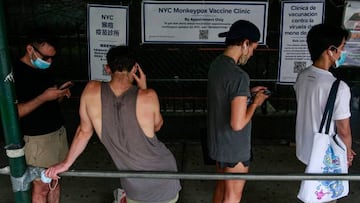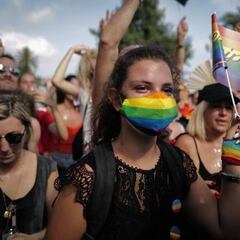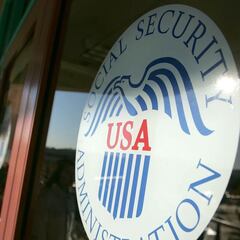WHO declares monkeypox a public health emergency. What does that mean and how can contagion be prevented?
The WHO has issued a PHEIC warning for monkeypox as cases spike worldwide, a label previously applied to Zika, Ebola and covid-19.

Concern over small numbers of cases of the monkeypox virus emerging in several regions of the world last May appeared to have subsided after these were contained, but on Saturday the World Health Organization (WHO) took the step of declaring the monkeypox outbreak a public health emergency of international concern (PHEIC). Recent WHO PHEIC declarations include the 2009 swine flu outbreak, polio and Ebola in 2014, the 2016 Zika emergency and the covid-19 pandemic in 2020.
The WHO PHEIC label is designed to trigger a coordinated international response and could unlock funding to collaborate on sharing vaccines and treatments. “I have decided that the global monkeypox outbreak represents a public health emergency of international concern,” WHO Director-General Tedros Adhanom Ghebreyesus said on Saturday morning. “Although I am declaring a public health emergency of international concern, for the moment this is an outbreak that is concentrated among men who have sex with men, especially those with multiple sexual partners,” Tedros told a media briefing in Geneva. “Stigma and discrimination can be as dangerous as any virus,” the WHO chief added.
Related articles:
What are the symptoms of monkeypox?
As of Saturday, when the WHO issued its PHEIC declaration, there had been 17,186 cases of monkeypox reported globally in 75 countries across the six WHO regions. So far, five deaths have been reported in Africa. The WHO added the risk level was moderate on a global level, except in Europe where it has been cited as a high risk.
Monkeypox, a viral disease, carries symptoms that can include flu-like symptoms, fever, headaches, chills and exhaustion, muscle pains, swollen lymph nodes and pus-filled lesions on the skin that form blisters. There are two strains of the virus. One, the West African strain, has a 1 percent fatality rate. The second, from the Congo, has a fatality rate of 10 percent.
The White House said the declaration was a “call to action for the world community to stop the spread of this virus.” Raj Panjabi, director of the White House pandemic preparedness office, said a “coordinated, international response is essential” to stop the spread of the disease and protect communities at the greatest risk of contracting it.
🚨 BREAKING:
— World Health Organization (WHO) (@WHO) July 23, 2022
"For all of these reasons, I have decided that the global #monkeypox outbreak represents a public health emergency of international concern."-@DrTedros pic.twitter.com/qvmYX1ZBAL
Is there a vaccine for monkeypox?
While there are no retroactive treatments proved to cure monkeypox infections, there are a number of vaccinations that can prevent the spread and make instances of infection less severe. The Centers for Disease Control and Prevention advises that the smallpox vaccination, cidofovir, ST-246, and vaccinia immune globulin (VIG) can all be used to tackle a monkeypox outbreak.
In the United States the Jynneos vaccine, also known as Imvamune or Imvanex, has been licensed for the prevention of monkeypox. The monkeypox virus is closely related to smallpox so, despite initially being a smallpox vaccine, the Jynneos shot can protect recipients from monkeypox.
Data from recipients in Africa found that smallpox vaccines are at least 85% effective in preventing monkeypox infection. There is also evidence that vaccination after exposure to monkeypox may prevent a serious infection.
It is possible to contract monkeypox from a person, though it was previously thought to be quite difficult to do so. It is far more common to catch monkeypox from an infected animal. This is usually through a bite or touching its bodily fluids. Human to human infection is possible through touching clothing, bedding or towels used by someone with the monkeypox rash, touching monkeypox skin blisters or scabs, or by being exposed to coughing and sneezing by someone infected with monkeypox.
WHO declared a global health emergency over the monkeypox outbreak. So far this year, there have been more than 16,000 cases of monkeypox in more than 75 countries. https://t.co/knjO2BQucN pic.twitter.com/8c4L2lRPnD
— Reuters (@Reuters) July 23, 2022
What happens now?
Health experts welcomed the WHO’s decision to issue the PHEIC declaration.
“The right result is clear – not declaring an emergency at this point would be a historic missed opportunity,” said Lawrence Gostin, a professor at Georgetown Law in Washington, DC, calling the decision politically brave.
The decision should help contain the spread of the viral disease, said Josie Golding, head of epidemics and epidemiology at the Wellcome Trust. “We cannot afford to keep waiting for diseases to escalate before we intervene,” she said.
The WHO and national governments have been facing intense pressure from scientists and public health experts to take more action on monkeypox.
Cases of the viral disease have ballooned since the committee first met at the end of June, when there were only about 3,000 cases. At the time, the expert group agreed to reconsider their position on the emergency declaration if the outbreak escalated.
Related stories
One of the key issues driving a reassessment was whether cases would spread to other groups, particularly children or others who have been vulnerable to the virus in past outbreaks in endemic countries. On Friday, the United States identified its first two monkeypox cases in children.
WHO officials said on Saturday they were exploring the possibility of the virus spreading via new modes of transmission.

